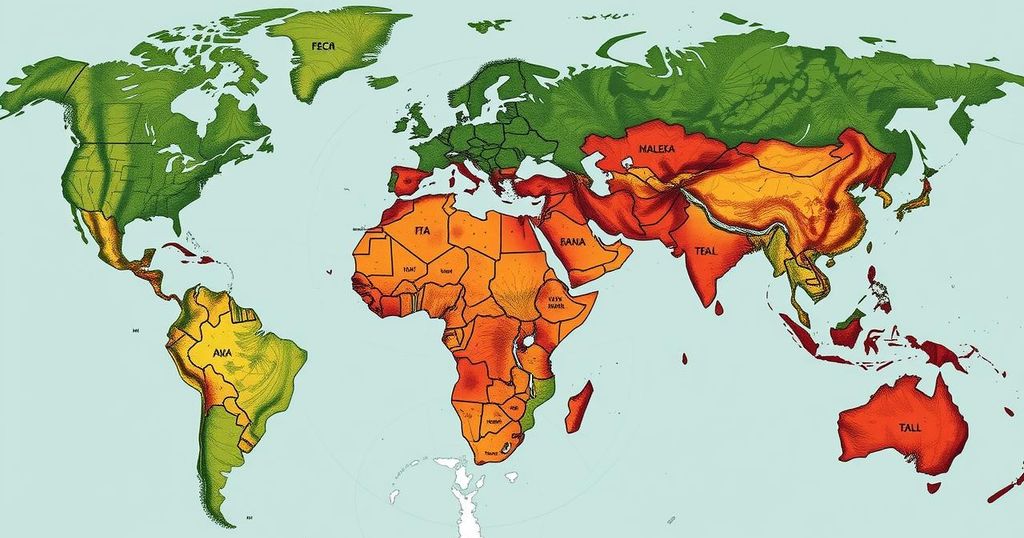COP29 concluded with a commitment of US$300 billion annually from developed nations for climate finance, significantly lower than the US$1.3 trillion required by African countries. Political influences and fossil fuel lobbyists hampered negotiations, leaving African nations without sufficient funding to combat climate impacts. Moving forward, African countries must use their mineral resources as leverage to secure better financing deals.
The recent COP29 climate conference ended with a commitment from global northern nations to provide US$300 billion annually in climate finance to developing countries. However, this figure is significantly less than the US$1.3 trillion that African countries were seeking to address the severe challenges posed by climate change. This shortfall limits the ability of African nations to implement effective adaptation and mitigation strategies, and raises concerns about the sustainability of their debt levels.
African negotiations at COP29 aimed to secure climate financing that includes damage compensation and approaches for mitigation to counter the effects of climate change. Despite the established collective goal, the amount allocated remains critically inadequate, particularly as African nations face increasing climate-related disasters. This amounts to a missed opportunity for addressing one of the most pressing global issues.
Furthermore, it became evident that political factors, including the significant presence of fossil fuel lobbyists and geopolitical tensions, undermined negotiations. These influences have diverted attention and resources away from the urgent need for substantial climate financing, reflecting a broader pattern of neglect toward developing nations in critical discussions.
To address the missed targets, African nations must pursue alternative strategies, such as leveraging their natural resources to negotiate better financing terms. This includes withholding essential minerals required for energy transitions until adequate financial commitments for climate adaptation are met. COP29 concludes but the urgency remains, calling for African countries to engage in proactive dialogues to ensure their needs for climate financing are adequately addressed moving forward.
As climate change continues to impact global weather patterns, vulnerable regions like Africa are at the front of its devastating effects. The failure to secure appropriate financial resources for climate change adaptation and mitigation during COP29 reflects a broader systemic issue in international climate negotiations. With experts indicating a vastly higher financing requirement, African nations find themselves caught in a cycle of insufficient support and increasing climate risks. The agreements reached at COP29, while a step toward mobilization, do not meet the urgent needs of the continent.
In conclusion, COP29 highlighted the significant gap between the financing needs of African countries confronted by climate change and the commitments made by developed nations. The pledges, which amount to only US$300 billion, are grossly insufficient compared to the US$1.3 trillion demanded by African leaders underlining the urgent need for more substantial, non-repayable climate financing options. Moving forward, African nations must strategically leverage their resource wealth to negotiate better financial terms and ensure that climate actions translate into tangible outcomes.
Original Source: theconversation.com







